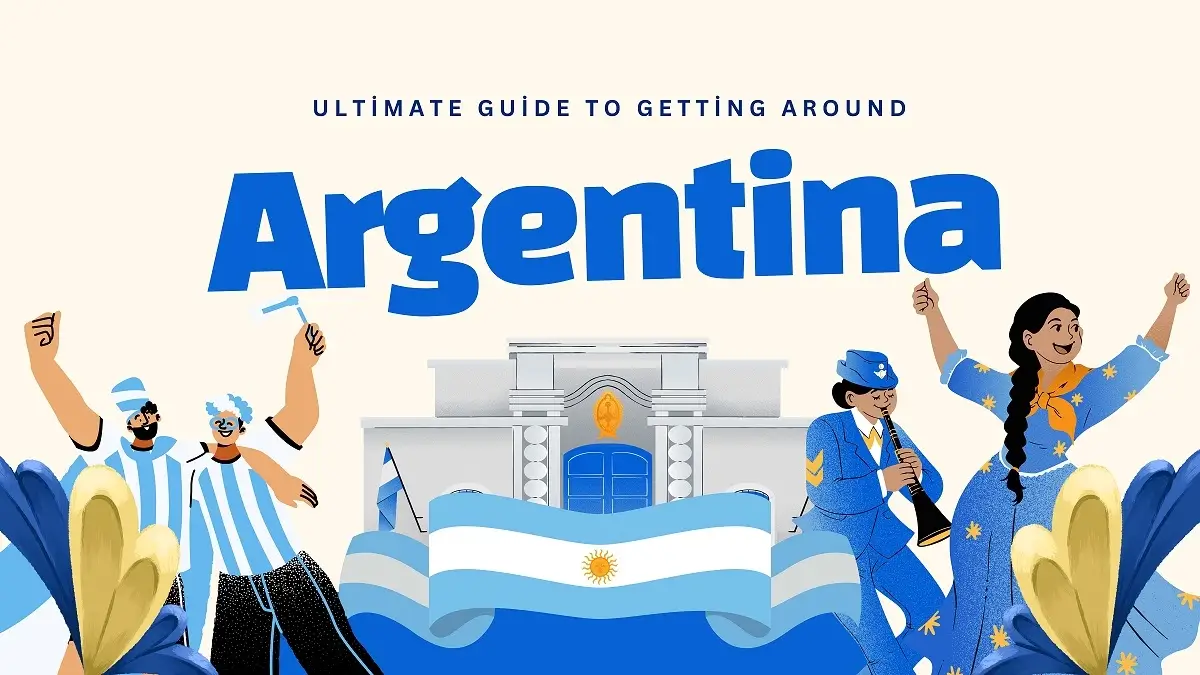Moving abroad can be a life-changing adventure. It’s full of unexpected twists and turns.
Hey everyone, gather around—I’ve got some stories to share from my years hopping between countries. Surprising things that happen when you move abroad often catch you off guard, turning what seems like a simple relocation into a wild ride of self-discovery and adaptation. I’ve lived in places like Spain, Australia, and Germany, and each move flipped my world in ways I never expected. Let me walk you through ten of them, like we’re chatting over coffee. These aren’t just surface-level tips; they’re the real, eye-opening shifts that reshaped how I see life.
You Realize Home Isn’t Just One Place Anymore
When I first landed in Madrid, I thought home was still back in the States, with my family’s old house and familiar streets. But after a few months, that changed. Suddenly, home split into pieces—one part nostalgia for childhood spots, another the cozy apartment I rented abroad. It’s weird how your heart tugs in multiple directions. You miss the little things, like your mom’s cooking, while loving the new routines, like weekend markets in your adopted city. This duality hits hard at first.
Over time, I learned to embrace it. Packing for visits home became a ritual of blending worlds—stuffing suitcases with local treats to share. But the surprise? You never feel fully settled in one spot again. It’s bittersweet, making every return or departure emotional. Friends back home don’t always get it, asking why I can’t just “come back for good.” Yet this shift broadened my view, turning me into someone who belongs everywhere and nowhere at once.
I remember one holiday season in Sydney, staring at my phone during family video calls. The time difference made it tough, but it forced me to cherish those connections more. Now, home feels like wherever I plug in my laptop and feel at ease. If you’re thinking of moving, prepare for this mental map redraw. It strengthens you, but it also leaves a quiet ache.
Friendships Evolve in Ways You Can’t Predict
Moving to Berlin, I worried about losing touch with old pals. Turns out, some bonds faded fast—those casual hangouts turned into occasional likes on social media. It’s surprising how distance reveals true friendships. The ones who check in regularly? They become lifelines. Others drift, and that’s okay; life moves on for everyone.
On the flip side, I formed intense connections abroad. Expat friends turned into family overnight, sharing late-night talks about homesickness or laughing over cultural mishaps. We relied on each other during tough spots, like when I got sick far from home. These relationships bond quickly because you’re all in the same boat, navigating the unknown together.
Making local friends was trickier than expected. In Germany, people were polite but guarded, sticking to their established circles. It took effort—joining clubs, learning the language—to break in. Once I did, those friendships added depth, teaching me local customs and slang. But the surprise was how selective I became, prioritizing quality over quantity.
Back home visits highlighted the changes. Some old friends felt distant, our lives diverging. It stung at first, but it taught me to nurture what matters. If you’re moving, invest in those video calls early. They keep threads alive amid the shifts.
Culture Shock Sneaks Up on the Small Stuff
I expected big cultural differences when I moved to Spain, like siestas or late dinners. But the real shocks were the everyday quirks. Simple tasks, like grocery shopping, threw me off—stores closed early on Sundays, and produce sections looked alien. I once spent an hour hunting for familiar snacks, only to settle for local alternatives.

Social norms hit differently too. In Australia, casual chats with strangers were normal, but in more reserved spots like Germany, small talk felt awkward. I learned to adapt, bowing to local etiquette to avoid faux pas. It’s exhausting at first, constantly observing and adjusting your behavior.
Food was another curveball. What I craved from home wasn’t available, leading to creative substitutions or pricey imports. Over time, my palate shifted—I started loving paella more than burgers. But the initial frustration? Intense. It made me appreciate how routines ground us.
Language barriers amplified everything. Even with basics, misunderstandings happened, like ordering the wrong meal. I pushed myself to improve, taking classes and practicing daily. The payoff was huge, opening doors to deeper interactions. Looking back, these shocks built resilience, turning discomfort into growth.
You Spend More Time Alone Than Ever Before
In my early days in Sydney, solitude hit like a wave. No family nearby, no old friends to call for impromptu plans. I ate meals alone, explored neighborhoods solo, and even celebrated small wins by myself. It felt lonely at first, especially after bustling life back home.
But this alone time forced self-reflection. I journaled more, tried new hobbies like hiking local trails, and learned to enjoy my own company. Without distractions, I confronted thoughts I’d ignored—career goals, personal flaws. It was therapeutic, helping me grow independent.
Surprisingly, it boosted confidence. Handling daily challenges solo, from fixing a leaky faucet to navigating public transport, made me resourceful. I stopped fearing quiet moments, using them to recharge. Friends abroad shared similar stories, turning solitude into a shared expat rite.
Of course, balance matters. I sought meetups to avoid isolation, blending solo time with social outlets. Now, I value that space; it sharpened my self-awareness. If you’re moving, pack books or podcasts—they become your best companions initially.
Bureaucracy Becomes Your New Nemesis
Visa paperwork in Spain tested my patience like nothing else. Endless forms, long queues at government offices, and confusing rules left me frustrated. What seemed straightforward back home turned into a maze abroad, with language barriers adding fuel.
Health insurance setups were another hassle. Finding doctors, understanding coverage—it all took weeks. I once waited months for residency approval, living in limbo. The surprise? How much time it consumes, delaying your “new life” start.
Banking shocked me too. Opening accounts required piles of documents, and international transfers hit with fees. I learned to research early, seeking expat forums for tips. Local advice helped navigate shortcuts I wouldn’t have found alone.

Over time, I got savvy, organizing files digitally and budgeting for admin costs. It built problem-solving skills, but the initial overwhelm was real. Friends in similar spots bonded over shared rants, turning gripes into laughs. Prepare by starting paperwork months ahead—it’s a game-changer.
Your Health and Wellness Routine Transforms
Getting sick in Australia without family nearby was a wake-up call. No one to bring soup or drive me to the doctor—I handled it alone. It felt isolating, amplifying minor illnesses into big deals. I stocked up on meds and learned local pharmacies fast.
Jet lag wrecked my sleep for weeks in Berlin. Adjusting to time zones meant groggy days and restless nights. I experimented with routines: walks in sunlight, avoiding naps. Surprisingly, it reset my body clock better than before, improving overall energy.
Mental health shifted too. Homesickness crept in during quiet times, leading to anxiety. I prioritized self-care—yoga apps, therapy sessions online. Expat communities provided support, sharing coping strategies like virtual family dinners.
Diet changed with available foods. Fresh produce abroad inspired healthier meals, but missing comforts led to splurges on imports. I balanced it, incorporating local superfoods. This evolution strengthened my resilience, teaching proactive wellness. Pack essentials and research healthcare upfront—it eases the transition.

You Miss Events and Milestones Back Home
My sister’s wedding happened while I was in Germany—thousands of miles away. Video calls helped, but nothing replaced being there. It’s one of those surprising things that happen when you move abroad: life continues without you. Birthdays, holidays, even tough times like family illnesses—I missed them all.
Guilt lingered at first. Why chase adventures if it means skipping these? But I focused on quality visits, making trips home count. Technology bridged gaps, with group chats keeping me looped in.
On the positive, it deepened appreciation for time together. Reunions became epic, packed with stories and laughs. Friends understood, sharing their own distant milestones. It taught me life’s impermanence, urging me to prioritize what matters.
Still, prepare emotionally. Schedule calls around events and save for travel. It stings, but the growth from independence outweighs it. Now, I celebrate doubly—once abroad, once home.
Confidence Grows from Constant Adaptation
Starting over in Madrid, I felt like a newbie at everything—from job hunts to social scenes. But tackling challenges solo built unbreakable confidence. Figuring out public transport in a foreign language? Check. Negotiating rent with limited vocab? Done. Each win stacked up.
Surprisingly, failures boosted it too. Botched interviews or cultural blunders became lessons, not defeats. I reflected more, adjusting my approach. Abroad, without a safety net, you learn self-reliance fast.
This spilled into other areas. I took risks, like solo trips or new hobbies, unafraid of judgment. Friends noticed the change during visits—I seemed bolder, more assured. It’s empowering, reshaping how I face uncertainty.
Expat life demands flexibility, turning adaptation into a superpower. I handle curveballs better now, viewing them as opportunities. If you’re moving, embrace the discomfort—it forges strength you didn’t know you had.

You Appreciate Your Roots in Fresh Ways
Explaining American customs to Spanish friends made me see home differently. Things I took for granted—like big grocery stores or casual friendliness—became treasures. Distance sparked fondness, even for quirks I’d complained about before.
Patriotism snuck in too. Watching U.S. sports abroad or craving holidays like Thanksgiving ignited pride. I shared recipes, hosting mini-celebrations to blend cultures. It bridged worlds, enriching my experience.
But criticism sharpened as well. Comparing systems, like healthcare or work-life balance, highlighted flaws and strengths. This balanced view matured my perspective, making me a better global citizen.
Surprisingly, it healed old grudges. Missing home softened edges, focusing on positives. Now, I defend my roots while embracing new ones. Pack mementos—they spark these reflections early on.
Practical Habits Shift Dramatically
Clothing shopping in Australia frustrated me—sizes ran small, styles differed. I ended up ordering online from home, paying extra shipping. It’s one of those surprising things that happen when you move abroad: daily habits overhaul completely.
Phone plans were a nightmare. Keeping my old number meant hacks like Google Voice, while adapting to local SIMs. I learned to budget for tech tweaks, avoiding costly surprises.
Grocery runs evolved too. Tiny stores abroad meant frequent trips, teaching meal planning. I discovered local gems, like fresh markets, ditching processed foods. It improved my health, but the adjustment phase involved trial-and-error.
Transport changed everything. Walking more in walkable cities like Berlin boosted fitness, reducing car reliance. I saved money, but rainy days tested resolve. These shifts streamlined life, making me efficient. Research local norms before packing—it smooths the ride.
Frequently Asked Questions
How do I prepare emotionally for moving abroad?
Start by talking to expats who’ve done it. Journal your fears and excitements. Build a support network early, like online groups. Focus on small goals for the first weeks to ease overwhelm. Remember, homesickness fades with time and routine.
What if I struggle with the language barrier?
Take classes before leaving or use apps daily. Practice with locals—most appreciate the effort. Immerse yourself: watch local TV, read news. It’s okay to mess up; laughs from mistakes build connections. Patience is key; fluency comes gradually.
How can I make friends in a new country?
Join expat meetups or hobby clubs. Use apps like Meetup or Bumble BFF. Attend local events, even solo. Be open—share your story to spark chats. Effort pays off; quality friends emerge from shared experiences.
What should I budget for when moving abroad?
Account for visas, flights, and initial housing. Factor in higher costs for imports or admin fees. Save for emergencies, like health issues. Track daily expenses early to adjust. Research cost-of-living comparisons online.
Is it normal to regret moving at first?
Absolutely—many feel it during the adjustment phase. Give it time; culture shock peaks early. Reflect on your reasons for moving. If it persists, reassess, but most regrets fade as you settle. Seek support if needed.
How do I handle missing family events?
Plan visits around key dates when possible. Use tech for virtual participation. Create new traditions abroad to fill gaps. Communicate openly about feelings. It gets easier as you build your life there.
Conclusion
Wrapping this up, folks, moving abroad reshapes you in profound ways—from splitting your sense of home to forging unbreakable confidence. I’ve shared these ten surprises from my own journeys, hoping they prepare you for the adventure ahead. It’s not always easy, with loneliness and bureaucracy testing your limits, but the growth? Unmatched. You emerge more adaptable, appreciative, and connected to the world. If your heart pulls you overseas, go for it—the surprises make the story worth telling. What’s your take? Share in the comments; I’d love to hear. Safe travels!



